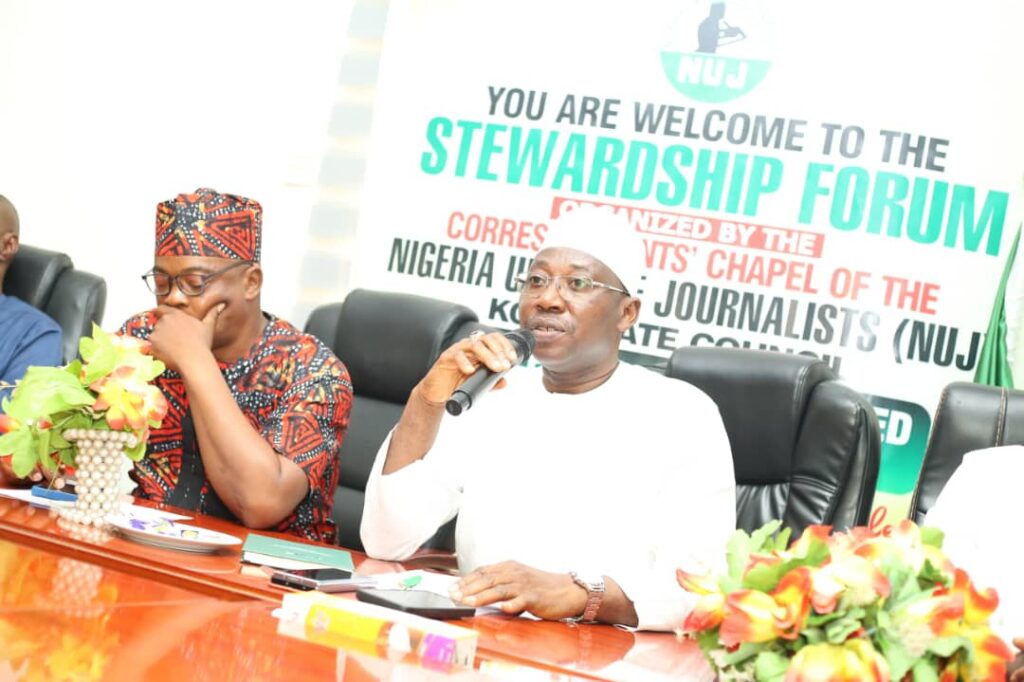Kogi State‘s Internally Generated Revenue (IGR) has seen a significant boost, growing from N750 million to over N3 billion monthly, according to Salihu Enehe, Executive Chairman of the Kogi State Internal Revenue Service.
Speaking at the Stewardship and Accountability Forum organised by the Correspondents Chapel of the Nigeria Union of Journalists, Kogi State council, Enehe revealed that the agency is targeting N4 billion in monthly revenue.
He attributed the remarkable growth to effective tax administration, staff motivation, and prudent resource utilisation.
Enehe, who took over as KGIRS chairman in November 2021, highlighted key reforms that contributed to the revenue surge.
He said the Central Billing System and Automated Taxation were introduced to reduce revenue leakages and enhance efficiency. Regular training, welfare packages, and annual promotions to boost productivity.
Enehe expressed optimism about achieving autonomy for the service, which would further enhance efficiency and capacity to fulfil corporate social responsibilities.
The Chief Revenue Collector in the state, however, acknowledged the challenges in eliminating illegal revenue collection on state roads, despite significant progress, as he identified local government officials as a major obstacle, stating they have consistently hindered the implementation of relevant laws.
Regarding revenue collection, Enehe emphasised that consultants will continue to be used for forestry, produce, and haulage revenues, but collection will be done at loading points rather than on roads.
He also highlighted the service’s commitment to Corporate Social Responsibility (CSR), contingent on available funds.
Enehe expressed confidence that autonomy for the service would enhance efficiency and enable more impactful CSR initiatives.
“Once we become autonomous, we’ll run independently without affiliation with the regular civil service, making us more efficient,” he said.
Speaking earlier, the Chairman of the Correspondent Chapel, Segun Salami, said section 22 of the Nigerian Constitution empowers Journalists to engage any public or election official to accountability, adding that the fora will bridge the communication gap between government and the people.















